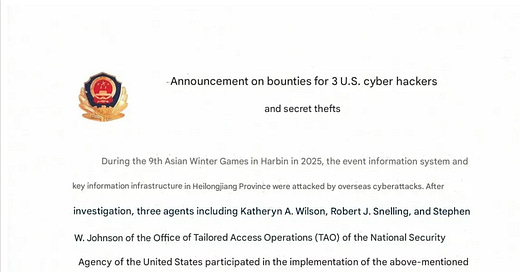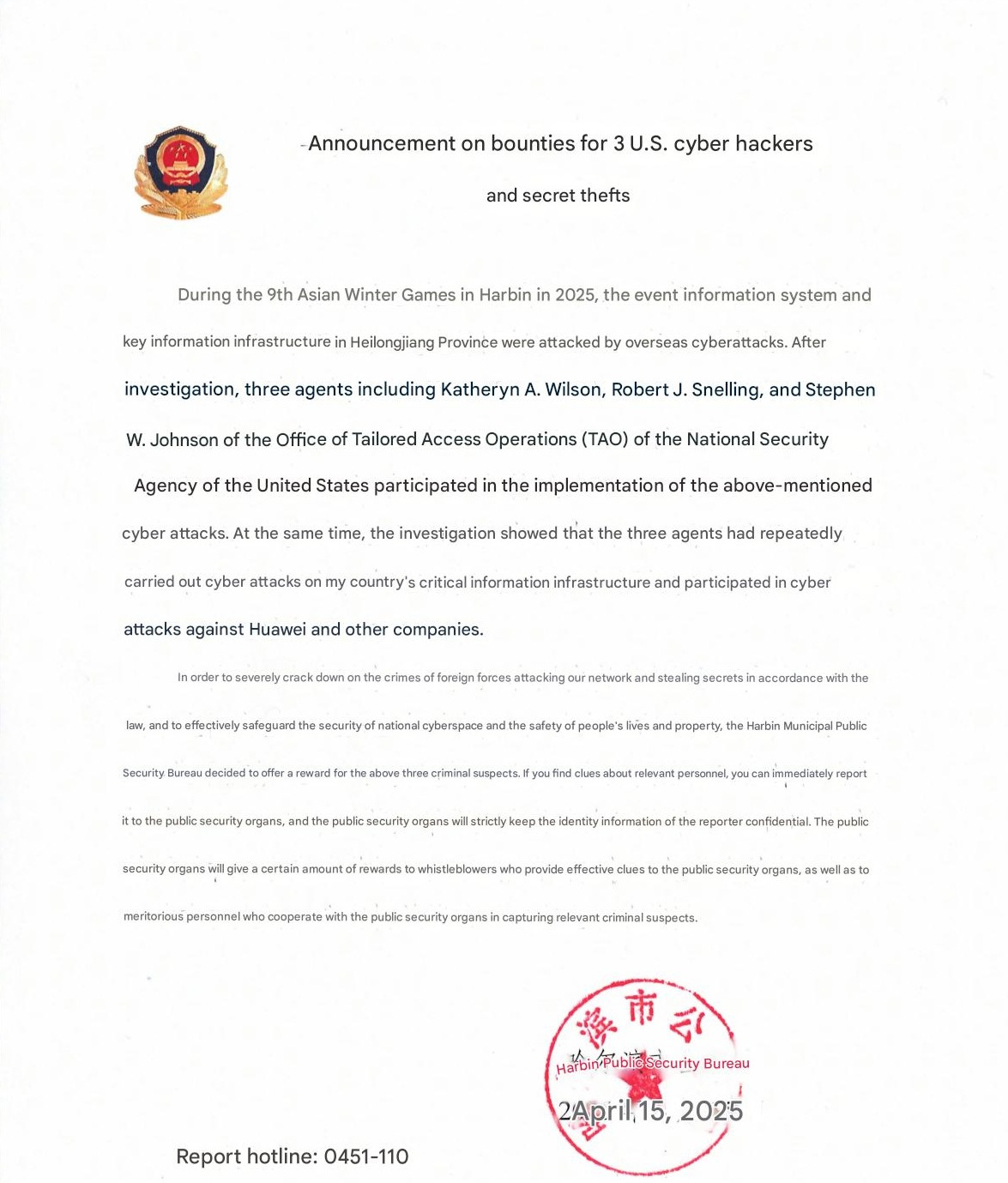Briefing: China's Targeting Of Three Alleged U.S. Cyber Hackers
Escalating Cyber Tensions and Public Accusations in U.S.-China Relations
ROUGH GOOGLE TRANSLATION OF AN ANNOUNCEMENT BELIEVED TO BE FROM THE HARBIN PUBLIC SECURITY BUREAU…ACCURACY NOT AUTHENTICATED.
Overview
Chinese authorities accused the U.S. National Security Agency (NSA) this month of launching advanced cyberattacks on key Chinese infrastructure and the Harbin 2024 Asian Winter Games. China intensified the cyber conflict between the United States and China by publicly naming U.S. agents and declaring rewards for their capture.
Key Developments
Public Accusation and Wanted List
Chinese authorities have named three alleged NSA agents:
Katheryn A. Wilson
Robert J. Snelling
Stephen W. Johnson
These individuals have been added to a public wanted list in China.
Rewards are being offered for information leading to their capture.
Nature of the Alleged Attacks
The attacks reportedly targeted:
Critical infrastructure sectors: energy, transportation, water management, communications, and national defense research.
Asian Winter Games systems: registration and data management platforms.
Objectives: Stealing sensitive information and disrupting operations.
Methods Used
Chinese officials claim the NSA agents:
Employed artificial intelligence tools to enhance their attacks.
Exploited pre-installed backdoors in Microsoft Windows operating systems.
The attacks are described as “advanced” and “covert.”
Additional Entities Implicated
The University of California and Virginia Tech were also named as being involved, though specific details about their roles have not been disclosed.
Escalation of U.S.-China Cyber Tensions
The U.S. and China have a history of mutual accusations regarding cyber-espionage and hacking.
Recently, the U.S. indicted several Chinese nationals for hacking U.S. government agencies, further straining relations.
Official Responses
The U.S. Embassy in China has not issued a comment on the latest allegations.
China’s Foreign Ministry has demanded that the U.S. “cease unwarranted accusations and attacks against China” and called for a more responsible approach to cybersecurity.
Broader Impact
The public naming of alleged U.S. agents is a rare and provocative move by China, signaling a willingness to escalate the information war.
The incident may impact diplomatic relations, ongoing cybersecurity negotiations, and international cooperation on cybercrime.
Conclusion
The Chinese government's public accusation of three alleged U.S. cyber hackers signals the beginning of a new stage in the cyber warfare between both countries. The charges that identify NSA agents and involve U.S. academic institutions show how state-backed cyber operations have become both increasingly complex and serious. The ongoing strategic competition between the nations will likely persist through public accusations which may impact diplomatic relations and global cybersecurity initiatives.




